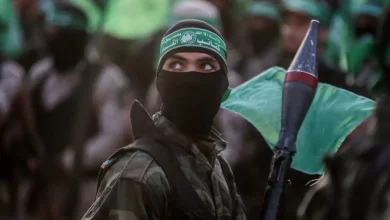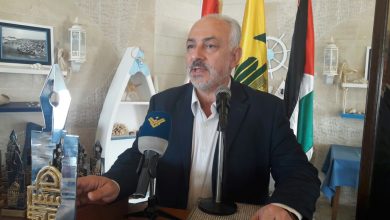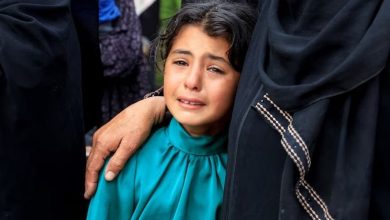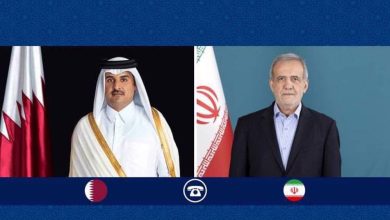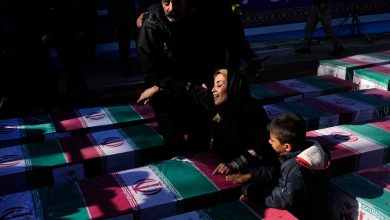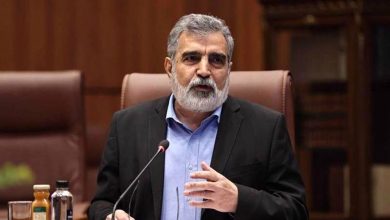Hezbollah will respond appropriately should ‘israel’ stay beyond the specified deadline: Sheikh Qassem
The Secretary-General of Hezbollah has asserted that the Resistance achieved a victory through Operation al-Aqsa Flood, vowing that the Resistance will respond to any Israeli infractions.
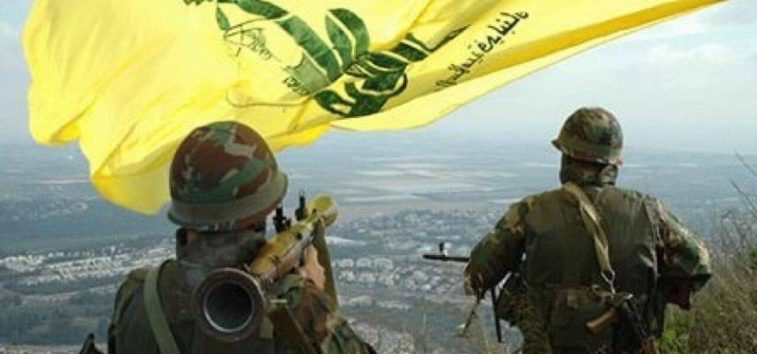
Hezbollah Secretary-General Sheikh Naim Qassem declared on Monday that the triumph in Gaza represents a victory not only for the Palestinian people but also for all regional communities that have backed the Resistance and its objectives. He made these remarks during a speech commemorating the conclusion of the conflict in Lebanon.
Sheikh Qassem highlighted the crucial importance of the ceasefire and prisoner exchange agreements in Gaza, asserting that the triumph in Gaza represents a victory not only for the Palestinian people but also for the entire region that stood in solidarity, as well as for global supporters who endorsed and upheld the cause.
In a recent statement, he detailed the results of the recent conflict, asserting, “Operation al-Aqsa Flood has successfully met its objectives, thwarting Israel’s efforts to dismantle Hamas and the resistance.”
Sheikh Qassem strongly condemned the global support for Israeli actions, asserting, “The assaults on Lebanon and Gaza were conducted with unchecked backing from the United States and Western nations.” He underscored the adversity encountered during the conflict period, stating, “The days from September 27 to October 7 were particularly arduous, but we successfully reestablished our presence.”
Resistance operations successfully hindered the progress of Israeli forces, limiting their advancement on the frontlines to only a few meters, according to statements by Sheikh Qassem. He further highlighted that efforts by the Israelis to advance, ignite internal discord, or dismantle the resistance were effectively blocked.
Furthermore, Sheikh Qassem spoke on the challenging phase experienced by Hezbollah, acknowledging the significant leadership losses incurred. “Our supporters did not anticipate the loss of this many leaders within such a brief period, with such extensive impact,” he remarked.
Hezbollah’s challenges have been attributed to recent advancements in Israeli capabilities, with a spokesperson citing the exposure of sensitive information, Israeli control over communications, the application of artificial intelligence, and the effectiveness of their air force as pivotal elements in the recent strikes against them.
In light of ongoing challenges, Sheikh Qassem underscored the steadfast nature of the resistance movement. He stated that the resistance maintains its strength through decisive actions, unwavering resolve, and the support of its followers, further bolstered by its enduring presence. He reiterated Hezbollah’s dedication to safeguarding Lebanon, noting, “The aggressors attempted to suspend hostilities on specific conditions, and we consented to the ceasefire, as we neither desired the aggression nor instigated the conflict.”
During discussions regarding the ceasefire agreement, Sheikh Qassem emphasized that Hezbollah’s acceptance was in accord with the Lebanese government’s stance. “We consented to the ceasefire as the government resolved to defend the borders and expel Israeli forces,” Sheikh Qassem stated. “This presents an opportunity for the state to execute its responsibilities and evaluate its political capabilities.”
Hezbollah’s Deputy Secretary-General, Sheikh Naim Qassem, highlighted the group’s decision to exercise restraint amid what he described as Israeli violations of existing agreements. In a statement, Sheikh Qassem emphasized that despite the pressure to retaliate and the potential perception of weakened resolve, Hezbollah opted for patience. “Our victory lies in our endurance and the inevitable withdrawal of the occupier against its will,” he stated.
He emphasized the persistent significance of resistance in Lebanon, declaring, “The resistance forces continue to maintain their presence and remain unwavering and formidable.” He expressed criticism towards the United States’ involvement in the ceasefire agreement, asserting, “The American backer of the agreement is the same entity that supports Israeli actions, failing to uphold its responsibilities. Despite this, we chose not to offer any pretext.”
In a statement highlighting Lebanon’s political landscape, Sheikh Qassem emphasized that the violations of the agreement underscore the necessity for the resistance in Lebanon.
Sheikh Qassem emphasized the enduring strength of the resistance in the face of efforts to weaken it throughout the conflict. He noted, “A campaign was waged against us even amidst the war, largely from within, depicting us as vanquished.” He further derided his detractors, remarking, “Some individuals may have faced a heart attack due to their unfulfilled aspirations of vanquishing the resistance.”
Sheikh Qassem announced with conviction that the resistance movement has achieved a significant victory, attributing this success to the steadfast support of the population. He emphasized that, “The resistance prevailed due to the courage of the people who advanced toward frontline villages, undeterred by the continued Israeli presence and hostilities.”
In a declaration underscoring resilience, Sheikh Qassem stated, “Individuals with dignity advance resolutely to the frontlines.” He asserted that “Israel cannot maintain its occupation against this indefatigable people, who refuse to be subjugated or see their land indefinitely occupied.”
Sheikh Qassem has emphasized the critical need for solidarity, stating that the combined strength of the people, the army, and the resistance effectively stopped Israeli forces from advancing into Beirut. He firmly opposed any proposal for extending timelines, declaring that not even a single day’s extension would be acceptable.
In a statement directed at Lebanon’s leadership, Sheikh Qassem lauded President Joseph Aoun, asserting that President Aoun would ensure Israel gains nothing. He refuted any notions of escalated aggression, questioning, “Does the United States truly anticipate finding anyone in Lebanon who would consent to prolong Israeli aggression? Such a scenario is implausible.”
He attributed the delays in the withdrawal to international parties, stating, “The United Nations and the United States bear the full responsibility for any consequences resulting from these delays.” He characterized the ongoing occupation as “an infringement on sovereignty” and urged for a cohesive response: “The government, citizens, resistance movements, political parties, and all factions must stand together to oppose it.”
Sheikh Qassem reiterated the independence of the resistance movement in addressing the occupation, emphasizing their agency in decision-making. “We are confronting an occupier that continues its aggression and refuses to withdraw; thus, the resistance holds the right to decide the nature, form, and timing of its actions,” he declared.
In response to domestic political challenges, Sheikh Naim Qassem stated that Hezbollah faces no difficulties in working alongside Lebanon’s leaders. He emphasized that the organization’s relations with both the President and the Prime Minister-designate are cordial. Sheikh Qassem asserted that any complications in forming the government are attributed to external parties, not Hezbollah.

